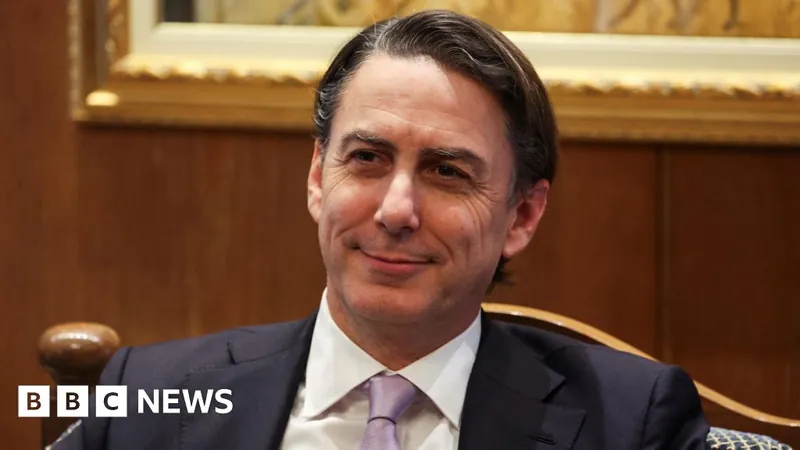
US Envoy Makes Groundbreaking Visit to Israel as Ceasefire Talks with Hezbollah Gain Momentum
2024-11-20
Author: Sophie
A significant diplomatic development is unfolding as a US envoy arrives in Israel to intensify discussions aimed at establishing a ceasefire with Lebanon’s Hezbollah movement. Amos Hochstein, the driving force behind the Biden administration's efforts to halt the year-long conflict, is engaging in high-level negotiations after optimistic signs emerged from Beirut.
On his recent trip to Lebanon, Hochstein returned to Beirut on Tuesday following the Lebanese government and Hezbollah's acceptance of a US-drafted ceasefire proposal. Despite the positive reception, both parties provided additional comments to the plan, prompting Hochstein to extend his visit for further dialogue, indicating a promising yet complex negotiation landscape.
Hochstein is expected to meet with Israeli Prime Minister Benjamin Netanyahu with hopes of finalizing terms. After his discussions with Lebanese Parliament Speaker Nabih Berri, who has both government and Hezbollah’s backing, Hochstein expressed his commitment to finding common ground, stating, "I will go to Israel to try to bring this to a close if we can."
While specific details of the ceasefire proposal remain shrouded in ambiguity, previous discussions highlighted key disagreements. A primary focal point has been the formation of a supervision mechanism to ensure compliance, alongside Israel’s insistence on retaining the capability to respond militarily if the deal is violated—a stipulation met with resistance from Lebanon.
In a statement to foreign ambassadors in Jerusalem, Israeli Foreign Minister Gideon Saar emphasized that "in any agreement, Israel will have to maintain our freedom to act if there will be violations." However, he refrained from elaborating on what those actions might entail, leaving many questions unanswered.
The backdrop of these negotiations is recognized as urgent, with the conflict's escalation since late September resulting in over 3,500 deaths in Lebanon and displacing more than one million individuals. Economically, Lebanon is reeling, with damage estimates soaring to $8.5 billion according to the World Bank.
Lebanese authorities assert that any ceasefire must adhere to the United Nations Security Council Resolution 1701, which brought an end to the 2006 war between Hezbollah and Israel. This resolution calls for the disarmament of Hezbollah's forces along the border areas, though both nations accuse each other of failing to comply fully—Israel claims Hezbollah’s military presence is still intact, while Lebanon points to Israeli airstrikes over their territory as a violation.
A prospective ceasefire deal may entail a timeline for the withdrawal of Israeli forces from southern Lebanon, paired with increased deployment of Lebanese troops to reassert control over the region. Yet, significant concerns linger regarding how these Lebanese forces will manage operations against Hezbollah, an imposing and well-armed group supported by Iran, potentially risking further sectarian strife.
Hezbollah’s Secretary General, Naim Qassem, acknowledged the US proposal while articulating the group’s reservations. He reiterated that a ceasefire requires an absolute halt to hostilities and respect for Lebanese sovereignty, underscoring the group’s readiness to fight if necessary. Despite facing substantial losses, including key leaders from Israeli airstrikes, Hezbollah has managed to reorganize and continue its resistance against Israeli forces.
As Hochstein endeavors to broker peace amidst rising tensions, Israel has ramped up airstrikes across Lebanon, yet surprisingly paused attacks in the capital during Hochstein’s visit, signaling a potential shift in strategy that could influence the ongoing negotiations.
With the stakes higher than ever, the success of these talks could shift the balance of power in the region and potentially rescue a nation on the brink of catastrophe. Will peace finally reign in Lebanon, or are we witnessing the calm before a storm? Stay tuned as the situation develops.

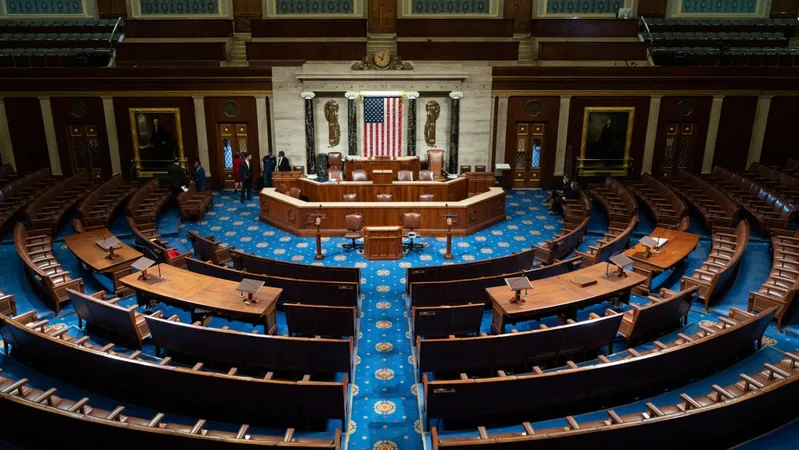
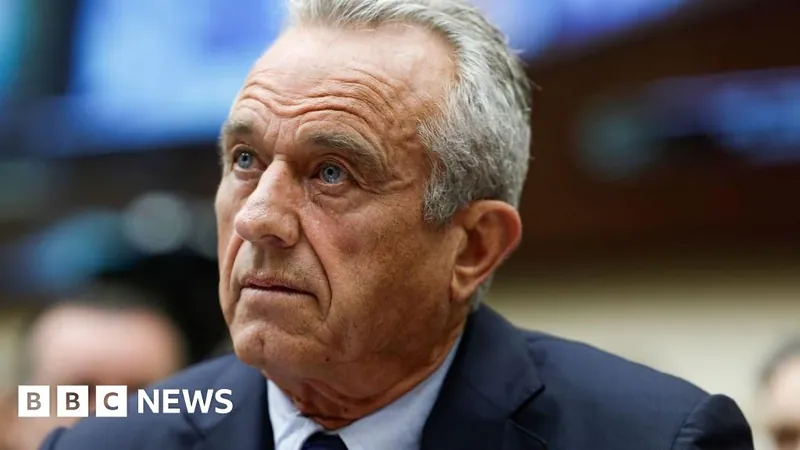




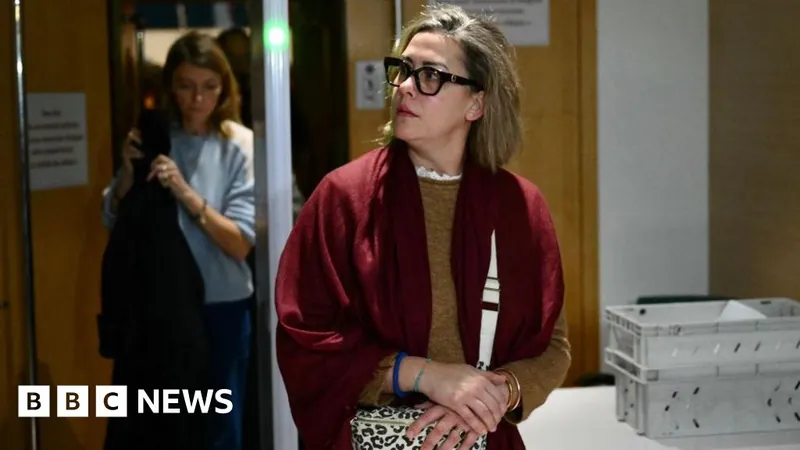
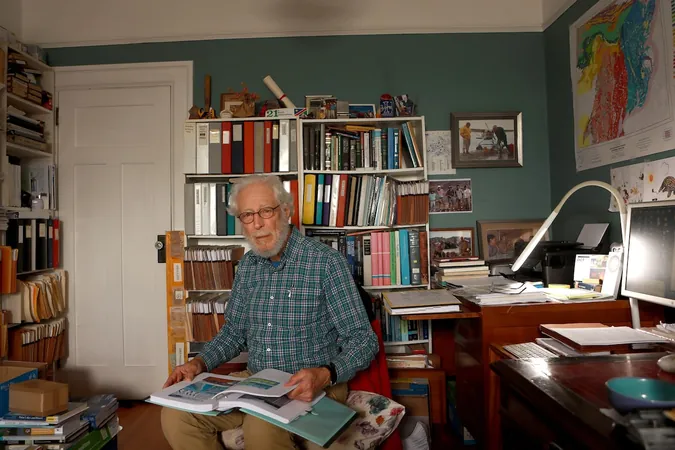
 Brasil (PT)
Brasil (PT)
 Canada (EN)
Canada (EN)
 Chile (ES)
Chile (ES)
 España (ES)
España (ES)
 France (FR)
France (FR)
 Hong Kong (EN)
Hong Kong (EN)
 Italia (IT)
Italia (IT)
 日本 (JA)
日本 (JA)
 Magyarország (HU)
Magyarország (HU)
 Norge (NO)
Norge (NO)
 Polska (PL)
Polska (PL)
 Schweiz (DE)
Schweiz (DE)
 Singapore (EN)
Singapore (EN)
 Sverige (SV)
Sverige (SV)
 Suomi (FI)
Suomi (FI)
 Türkiye (TR)
Türkiye (TR)